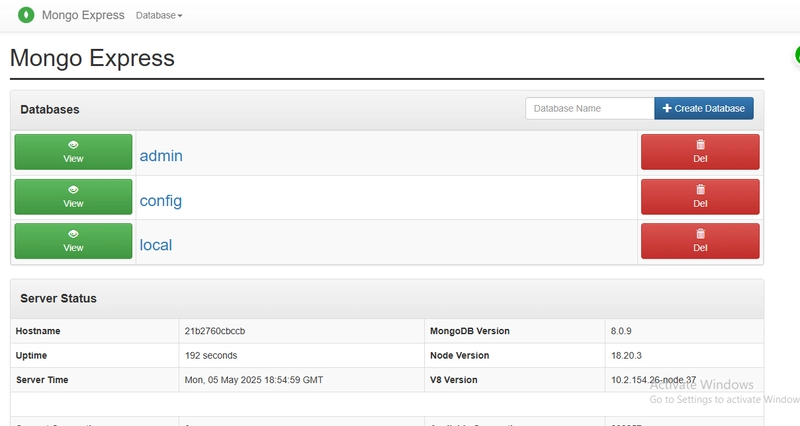Migrate Jenkins from Linux VM to macOS (Plain Installation)
Step 1: Jenkins Backup
Find your current JENKINS_HOME
(If unsure, you can check it inside Jenkins UI → Manage Jenkins → System Information → search for JENKINS_HOME.) e.g. /var/lib/jenkinsBackup Jenkins home
sudo tar -czvf jenkins_backup.tar.gz /var/lib/jenkinsStep 2: Transfer the Backup to Your macOS Machine
- Now this really depends on how you want to copy this data. Either SCP, USB, etc. I used traditional USB stick to copy this data to my Mac device.
Step 3: Install Jenkins on macOS
brew install jenkins-lts
brew services start jenkins-ltsBy default, Jenkins will use /Users//.jenkins as the JENKINS_HOME.
I faced an issue where Jenkins dint really start as it was not able to discover JAVA_HOME env upon running above command. Best way to get rid of this was to run this without services command
jenkins-ltsThat the entire 2 words command to start Jenkins with all the env variables preserved and available for jenkins to use.
Step 4: Replace macOS Jenkins Data with the Backup
- Stop Jenkins on macOS:
brew services stop jenkins-ltsOR
Command + C to Stop if you ran
jenkins-lts- Extract the backup and replace Jenkins home
cd ~
tar -xzvf jenkins_backup.tar.gz
mv ~/.jenkins ~/.jenkins.backup # Backup current empty Jenkins home
mv var/lib/jenkins ~/.jenkins # Use Linux Jenkins data- Fix permissions
sudo chown -R $(whoami) ~/.jenkins- Start Jenkins again
brew services start jenkins-lts
#OR
jenkins-ltsStep 5: Verify
Visit http://localhost:8080 on your browser.
Restore Jenkins from Backup using Docker Compose
Step 1: Jenkins Backup
Find your current JENKINS_HOME
(If unsure, you can check it inside Jenkins UI → Manage Jenkins → System Information → search for JENKINS_HOME.) e.g. /var/lib/jenkinsBackup Jenkins home
sudo tar -czvf jenkins_backup.tar.gz /var/lib/jenkinsStep 2: Transfer the Backup to Your macOS Machine
- Now this really depends on how you want to copy this data. Either SCP, USB, etc. I used traditional USB stick to copy this data to my Mac device.
Step 3: Extract Jenkins Backup
Create a working directory in your choice of OS (Linux, MacOS)
mkdir ${PWD}/jenkins_home
tar -xzvf jenkins_backup.tar.gz -C ${PWD}/jenkins_home --strip-components=1Step 4: Create the docker-compose.yml File
version: '3'
services:
jenkins:
image: jenkins/jenkins:lts
container_name: jenkins
ports:
- "8080:8080"
- "50000:50000"
volumes:
- ./jenkins_home:/var/jenkins_home
- /var/run/docker.sock:/var/run/docker.sock # Optional: if Jenkins needs to run Docker
restart: unless-stoppedStep 5: Start Jenkins with Docker Compose
docker-compose up -dStep 6: Verify
Visit http://localhost:8080 on your browser.
Known Issues - Admin Login Issue
Even after doing everything correctly, you might not able to login with admin or user credentials even though its correct and worked on earlier. Reason being whenever you create a user creds in Jenkins it encrypt it and might not be able to decrypt it. Fastest way to recover from this
Solution 1: Delete Admin User
rm -rf jenkins_home/users/adminRestart Jenkins after this and it will promt to create new admin user
Solution 2: Alter Admin Hashed Password
Ideally all the users are stored in /var/lib/jenkins/users/
You might see a folder with admin prefix. e.g. admin_13844028951691835221
Locate config.xml file inside the admin folder and change the below line
#jbcrypt:$2a$10$1me96JIU604I.q19wwgJTeqNJUKwZAuP11brUjk6VJTBfRuAYixxeCreate a new hash with the password you desire. You can use the below link to create a hash password
https://bcrypt-generator.com/
Replace the old hash value with the new hash you just created. Restart Jenkins and try to login with new password.
Just like Magic !!!! (Yeah I know, petty tricks but it works)

